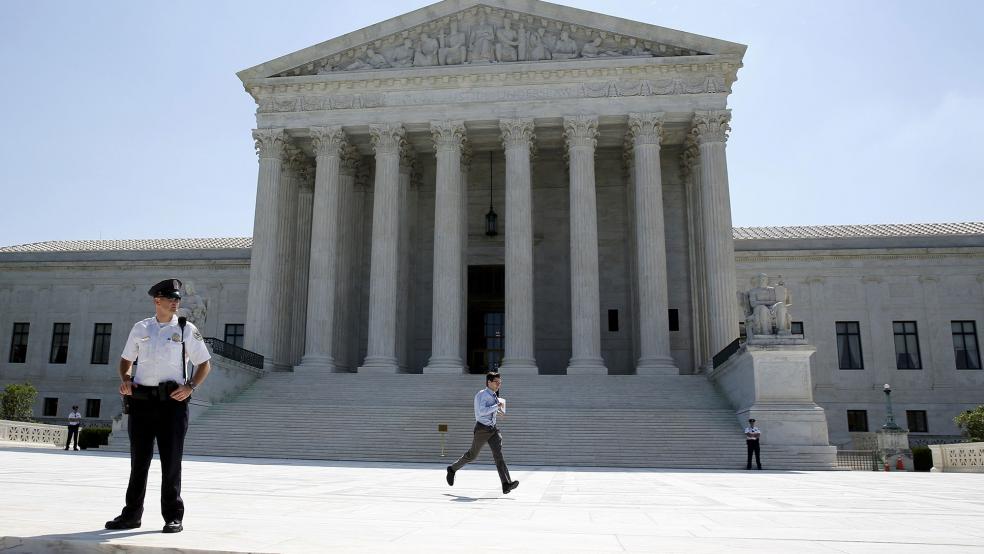Experts agree it will never be possible to take raw politics out the process of redrawing congressional district lines to reflect the new census.
In an age of sophisticated computers and political wizardry, the political party in control of a state legislature typically has the advantage of conjuring up new maps that maximize its hold on congressional seats. While the blatant gerrymandering of a bygone era is frowned upon, occasionally a weirdly shaped district emerges that nicely expands the majority’s influence and reach.
Related: Supreme Court upholds Arizona redistricting commission
In a spasm of bipartisan political reform, Arizona and a dozen other states in the past decade or so have stripped their state legislatures of the power to redraw district lines and turned that responsibility over to nonpartisan commissions to try to restore an element of fairness to the process.
Arizona voters approved a ballot initiative in 2000 to amend the state constitution to give most of the redistricting power to an independent commission comprised of two Republicans, two Democrats and an independent chair. In a state where the makeup of the electorate was 35 percent registered Republicans, 35 percent Independents and 30 percent Democrats, the commission came up with a congressional map with four safe Republican seats, two safe Democratic seats and three competitive districts,
Outraged that their party had been denied an even larger share of the U.S. House seats, Republican state legislators first tried to fire the commission. When that failed, they challenged the commission as unconstitutional and appealed court rulings all the way to the U.S. Supreme Court.
On Monday, the High Court ruled that Arizona’s voters were entitled to try to make the redrawing of congressional district lines a fairer, less partisan process. In a 5-4 decision, the court found that the commission created by the ballot initiative fit the definition of a “legislature” under the U.S. Constitution’s Elections Clause, which states that “the times, places and manner of holding elections for senators and representatives, shall be prescribed in each state by the Legislature thereof.”
Related: Why Democrats Are Gloomy About Taking Back the House
“The people of Arizona turned to the initiative to curb the practice of gerrymandering and, thereby, to ensure that Members of Congress would have ‘an habitual recollection of their dependence on the people,’” Justice Ruth Bader Ginsburg wrote in the majority opinion, quoting from the Federalist Papers. “The Elections Clause does not hinder that endeavor.”
The ruling was good news for Arizona and the dozen other states that have experimented with redistricting commissions, as well as other states that have been contemplating a switch but were awaiting a ruling from the Supreme Court. Alaska, Arkansas, California, Colorado, Hawaii, Idaho, Missouri, Montana, Ohio, New Jersey, Pennsylvania and Washington State all have moved to a commission system, with varying degrees of success.
Norman Ornstein, a congressional scholar with the American Enterprise Institute, hailed the decision for giving a much needed “boost in morale” to the reform effort, while adding that most states tenaciously cling to the old ways of doing business and aren’t likely to change in the foreseeable future.
“If the decision had gone the other way, not just Arizona but a lot of other states would have had their commissions come under a cloud, and the ability to do anything more on redistricting and election reform by bypassing self-interested lawmakers would have just taken a serious blow,” Ornstein said today.
Related: House GOP Budget Would Wipe Out Deficit in 10 Years
Even with the favorable ruling, he added, “It’s still going to be a state-by-state slog to try to do anything to reform the redistricting process, and that’s expensive and arduous and doesn’t come easily.”
“I’m very, very relieved by the decision, but anyone who thinks this means we can turn a corner on the practice [of gerrymandering], I wouldn’t take it too far,” Ornstein said.
Top Reads from The Fiscal Times:





